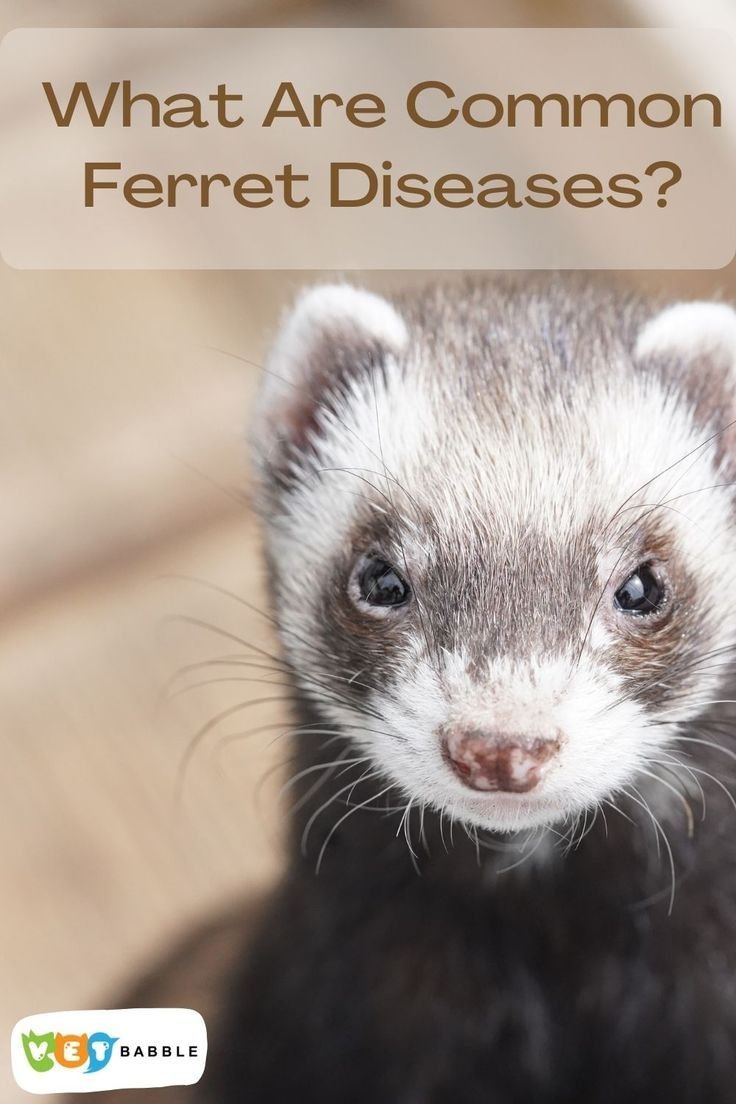
Cinnamon ferrets, like their other ferret cousins, are prone to certain health problems. Understanding these potential issues and knowing how to prevent them can help ensure your furry friend lives a long, happy life. So, grab a cup of your favorite coffee, and let’s dive into some common health concerns that might affect cinnamon ferrets and how you can tackle them.
Adrenal Disease in Cinnamon Ferrets
One of the most prevalent health concerns for cinnamon ferrets is adrenal disease. This condition occurs when the adrenal glands produce too many hormones, leading to various health issues. You might notice some changes in your ferret’s behavior or appearance—like thinning fur or sudden weight loss. It can sound a bit scary, but knowing the signs can help you catch it early.
The good news? There are ways to prevent or manage adrenal disease. Regular vet check-ups are essential. Your vet can run specific tests to monitor hormone levels and catch any problems before they escalate. Providing a balanced diet rich in nutrients and ensuring your ferret gets plenty of exercise can also make a big difference. Remember, keeping them active not only helps maintain their weight but also boosts their overall health.
Signs of Adrenal Disease
So, how do you know if your cinnamon ferret might be developing adrenal disease? Here are some key signs to look out for:
- Fur Loss: This often starts on the back and tail.
- Behavior Changes: If they’re more aggressive or lethargic, it could signal a problem.
- Weight Loss: If your ferret seems to be losing weight despite eating well.
- Increased Urination: You might notice your ferret peeing more than usual.
If you spot any of these symptoms, it’s best to consult your vet right away.
Insulinoma: A Silent Threat
Another health concern for cinnamon ferrets is insulinoma. This is a tumor of the pancreas that leads to an overproduction of insulin, causing dangerously low blood sugar levels. Imagine your ferret feeling weak or shaky—it can be quite alarming. Symptoms can include lethargy, excessive drooling, or even seizures in severe cases.
To prevent insulinoma, it’s critical to focus on your ferret’s diet. Feeding them small, frequent meals can help stabilize their blood sugar levels. Look for high-quality ferret food that’s high in protein and low in carbohydrates. Also, keep an eye on their weight. Being overweight can increase the risk of developing this condition.
Recognizing Insulinoma Symptoms
It’s essential to be aware of the signs that might indicate your cinnamon ferret has insulinoma:
- Weakness: They may seem tired or unwilling to play.
- Hunger: An excessive appetite might be a sign of blood sugar issues.
- Seizures: These can occur if blood sugar levels drop too low.
- Difficulty Walking: They may have trouble coordinating their movements.
If your ferret shows any of these signs, getting to the vet quickly is crucial.
Ferret Osteodystrophy
Cinnamon ferrets can also suffer from ferret osteodystrophy, a condition that affects their bones. This disease is often due to nutritional deficiencies, particularly a lack of calcium. Think of it like your ferret’s bones turning fragile—much like a worn-out pair of shoes. Without proper nutrients, their bones can become weak and painful.
To prevent this issue, ensure your ferret has a diet rich in calcium and vitamin D. Foods like high-quality ferret kibble, raw bones, or commercial ferret diets can fill the gap. It’s also a good idea to provide access to sunlight or UVB lighting, which helps them absorb vitamin D.
Signs of Osteodystrophy
Here are some signs that your cinnamon ferret might be facing bone issues:
- Unusual Posture: They may sit or stand oddly due to discomfort.
- Painful Movement: You might notice them moving gingerly or favoring a leg.
- Decreased Activity: If they seem less playful than usual, that could be a red flag.
If you observe any of these signs, consider a visit to your veterinarian for evaluation and treatment options.
Dental Issues in Ferrets
Dental health can also become a concern for cinnamon ferrets. Just like us, they can suffer from dental disease, which could lead to painful infections or tooth loss. Imagine not being able to enjoy your favorite treats because your mouth hurts—that’s what your ferret might be feeling if their teeth aren’t cared for.
To keep their teeth healthy, provide chew toys or bones specifically designed for ferrets. Regular dental check-ups are also important. Your vet can clean their teeth and check for any underlying issues.
Recognizing Dental Problems
Keep an eye out for these signs that might indicate your ferret has dental problems:
- Bad Breath: A foul smell could mean they have dental disease.
- Difficulty Eating: If they’re struggling with their food, it could be a dental issue.
- Drooling: Excessive drooling can be a sign of oral pain.
If you notice these signs, it’s time to make a vet appointment.
Preventive Care and Regular Vet Visits
Now that we’ve covered common health issues, let’s talk about prevention. Regular veterinary care is crucial for keeping your cinnamon ferret healthy. An annual wellness check allows your vet to catch any issues before they become serious. During these visits, make sure to ask about vaccination schedules, parasite control, and diet.
Creating a well-rounded routine for your pet can also make a huge difference. This includes regular playtime, appropriate toys, and social interaction. Cinnamon ferrets are social creatures, and keeping them stimulated helps prevent behavioral issues and maintains their mental health.
Setting Up a Care Routine
Here are some key points to consider for a solid preventive care routine:
- Diet: Feed a balanced diet rich in high-quality protein and low in fillers.
- Exercise: Provide ample space for them to run and explore.
- Grooming: Regular brushing can help manage their fur and skin health.
- Social Interaction: Spend quality time daily to keep them happy and engaged.
By staying committed to your cinnamon ferret’s health and well-being, you’re setting them up for a longer, happier life.
Caring for a cinnamon ferret can be incredibly rewarding, but it comes with responsibilities. By being aware of common health issues like adrenal disease, insulinoma, osteodystrophy, and dental problems, you can take the necessary steps to keep your ferret healthy. Regular veterinary check-ups, a balanced diet, and a caring environment go a long way.
Remember, your ferret relies on you for their health and happiness. By investing time and effort into preventive care, you’re not just being a pet owner—you’re being a fantastic ferret parent! So take those preventive steps and enjoy many playful moments with your furry friend.

